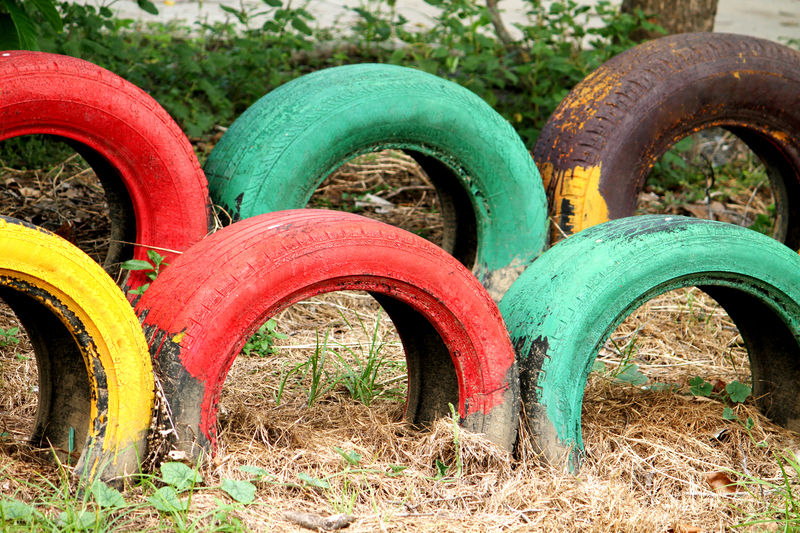Amplifying the Voices of Youth: Raising Awareness for Plastic Issues in London
Posted on 17/03/2025
In recent years, the issue of plastic pollution has gained widespread attention and concern worldwide. From the Great Pacific Garbage Patch to the increasing number of sea animals found with stomachs full of plastic waste, it is clear that plastic pollution is a global crisis that needs to be addressed urgently. And while many adults may feel overwhelmed and unsure of how to make a positive impact, young people are leading the charge in raising awareness and creating change. In London, the voices of youth are amplifying the urgency and importance of addressing plastic issues in a city that generates over 5 million tonnes of plastic waste each year.
Plastics have become an integral part of our daily lives, from single-use bottles and bags to packaging for almost everything we buy. But this convenience comes at a heavy cost - one that is being shouldered by our planet and future generations. According to a report by the Plastic Pollution Coalition, only 9% of all plastic ever produced has been recycled, leaving the rest to pile up in landfills or pollute our oceans and natural habitats. Londoners alone use around 3 billion straws, 1 billion cups and 5 billion bottles every year, making it clear that immediate action is needed to address this growing problem.
Fortunately, young people in London are not sitting idly by waiting for others to take action. Instead, they are using their voices and creativity to raise awareness about plastic pollution and promote sustainable solutions. One such example is Ella Daish, a 30-year-old activist who started the #EndPeriodPlastic campaign in 2018. Her efforts led to Tesco becoming the first supermarket in the UK to offer period products without plastic packaging. Similarly, Amy and Ella Meek, teenage sisters known as The Kids Against Plastic, have been challenging businesses and individuals to reduce their plastic consumption through their campaigning and educational activities.
In addition to these inspiring individuals, there are also several organizations dedicated to amplifying the voices of youth and educating them on the importance of tackling plastic issues in London. The UK Youth Climate Coalition, for example, runs youth-led campaigns and workshops focusing on climate change and plastic pollution. Another organization, Young Friends of the Earth, brings together like-minded young people in London to campaign for a greener and more sustainable world.
The efforts of these young activists and organizations have not gone unnoticed. In 2018, the Mayor of London launched the 'London's National Park City' initiative to tackle plastic pollution as part of its aim to become a greener and cleaner city. This initiative includes measures such as installing water fountains across the city to reduce plastic bottle use and promoting the use of reusable containers for takeaways. This is a positive step towards addressing plastic issues in London, but there is still much work to be done.
Pros:
1. Amplified youth voices - The involvement of young people in raising awareness for plastic issues in London has brought much-needed attention and urgency to this crisis. Their passion and creativity have helped engage a wider audience and inspire others to take action.
2. Grassroots movements - Many of these initiatives are grassroots movements, meaning they are led by ordinary individuals who are passionate about creating change in their communities. This shows that anyone can make a difference and contribute towards a more sustainable future.
3. Education - By involving young people in campaigns and workshops focused on plastic pollution, they are being educated about its impact on the environment. This will equip them with knowledge and skills to continue advocating for sustainable solutions in the future.
Cons:
1. Lack of government action - While there have been positive steps taken by the Mayor of London, there is still a lack of government action at larger scales. Without adequate policies and regulations, it will be challenging to bring about significant change in reducing plastic waste.
2. Limited resources - Many youth-led initiatives rely heavily on volunteers and donations to carry out their efforts, which can limit their capacity to make a widespread impact. This highlights the need for more support from government and corporations.
Tips:
1. Reduce, Reuse, Recycle - The famous three R's must be at the forefront of our minds when it comes to plastic consumption. By being mindful of our choices and opting for reusable alternatives, we can significantly reduce the amount of plastic waste we generate.
2. Support local initiatives - By supporting youth-led initiatives and grassroots movements in your community, you are contributing towards a more sustainable future. Whether through donations or volunteer work, every little bit counts.


Takeaways:
1. Every voice matters - As seen in London, even the voices of young individuals can have a powerful impact on raising awareness and creating change.
2. Collaboration is key - Involving different stakeholders such as government, businesses, and individuals is crucial in tackling plastic issues effectively. By working together, we can create a larger impact and bring about significant change.
Conclusion:
In conclusion, amplifying the voices of youth in raising awareness for plastic issues in London is vital in addressing this global crisis. Their passion and involvement are inspiring others to take action and bringing about positive changes in their communities. However, more needs to be done on all levels - from individuals making conscious choices to governments implementing effective policies - to tackle plastic pollution effectively and ensure a greener and cleaner future for generations to come.
Latest Posts
Eco-Friendly Home Organization
Dispose with Care: Responsible Strategies for Removing Waste
Sustainable Solutions for Commercial Waste
Sustainable Solutions: A Closer Look at London's Waste Reduction Efforts

 020 3744 5712
020 3744 5712










